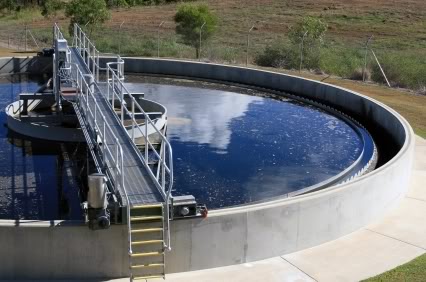Pennsylvania Proposes to Adopt Effluent Standards for New High TDS Wastewater Discharges
Posted: February 21st, 2010
Author: All4 Staff
The Pennsylvania Department of Environmental Protection (PADEP) is proposing to amend 25 Pa. Code Chapter 95 (relating to Wastewater Treatment Requirements) to establish new effluent standards for new sources of wastewaters containing high Total Dissolved Solids (TDS) concentrations. The Environmental Quality Board (EQB) published the proposed rulemaking in the November 7, 2009 PA Bulletin (39 Pa.B. 6467), held four (4) public meetings across the State in December 2009, and accepted comments on the amendments through February 5, 2010. The TDS effluent standards would apply to any new “high TDS” wastewater discharge that did not exist on April 1, 2009 as well as any new additional discharge, expanded discharge, or increased discharge from a facility in existence prior to April 1, 2009. A “high TDS” wastewater discharge is considered a TDS concentration that exceeds 2,000 mg/l or a TDS loading that exceeds 100,000 pounds per day. Included in the proposed rulemaking for affected effluents are monthly average discharge limits of 500 mg/l of TDS, 250 mg/l of total chlorides, and 250 mg/l of total sulfates.
Industrial facilities, including surface and underground mining, electric power plants, cement plants, chemical manufacturers, food manufacturers, pharmaceutical manufacturers, iron and steel manufacturers, and other facilities that have existing discharge levels that exceed the proposed limits may be impacted by the proposed regulatory action. As a result of these proposed regulatory amendments, new or increased discharges will be required to install advanced treatment to meet the new TDS, total chloride, and total sulfate effluent requirements. Existing industrial sources of high TDS wastewaters would be able to continue to operate under their existing permit limits and conditions until such time that they propose to expand, increase, or add new wastewater discharges. New or expanded high TDS wastewater sources would not be permitted unless the applicant proposes to install adequate treatment (e.g., reverse osmosis, ultra filtration, or evaporation/crystallization) by January 1, 2011. PADEP anticipates that the cost of advanced treatment to meet the new standards would cost approximately $0.25 per gallon. Industry sources have stated that the mandated level of treatment would require tremendous capital and operating costs, and may create new environmental issues, such as increased energy use, increased air emissions, and additional waste generation in the form of dewatered salts.
 In addition to the new limits for new “high TDS” facility wastewater discharges, the proposed rulemaking would also impose limitations from new discharges of wastewater resulting from fracturing, production, field exploration, drilling, or completion of oil and gas wells. These provisions would reportedly provide additional controls and environmental protections to address potential impacts from the development and exploration activity within the Marcellus Shale reserves of the State.
In addition to the new limits for new “high TDS” facility wastewater discharges, the proposed rulemaking would also impose limitations from new discharges of wastewater resulting from fracturing, production, field exploration, drilling, or completion of oil and gas wells. These provisions would reportedly provide additional controls and environmental protections to address potential impacts from the development and exploration activity within the Marcellus Shale reserves of the State.
The proposed amendments will go into effect upon publication in the Pennsylvania Bulletin as final-form rulemaking. Facilities with existing wastewater discharges, particularly those with plans to modify, expand, or increase discharges or facilities that accept off-site wastewater for treatment should evaluate the quality of their existing discharge and the potential impact of the proposed new regulatory limits. A copy of the proposed rule can be viewed here.
